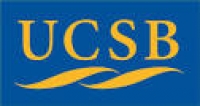






The Department of Religious Studies at UCSB is unique among California universities, state universities, and colleges. The courses it offers address the critical issues relating to the subject of religion in its many facets: historical, cultural, literary, aesthetic, sociological, experiential, and philosophical. In introductory and advanced courses, its faculty—respected in their fields nationally and internationally—regularly teach about the religions of the world, and about the complex relationships between religion and politics, society, war, and everyday life. It is the only such department in the University of California system to offer B.A., M.A., and Ph.D. degrees. The Department of Religious Studies at UCSB houses the prestigious Capps Center for the Study of Ethics, Religion, and Public Life; maintains close ties with the Center for Middle East Studies; boasts several endowed chairs located within it–the XIV Dalai Lama Chair in Tibetan Studies, the Virgil Cordano Chair in Catholic Studies, and the Tipton Distinguished Visiting Chair in Catholic Studies. The department teaches a plethora of research languages, including Arabic, Targumic, Aramaic, Coptic, Hebrew, Hindi, Pali, Persian, Punjabi, Sanskrit, Syriac, Tibetan, and Turkish; oversees, besides its undergraduate major in Religious Studies, undergraduate minors in American Indian and Indigenous Studies and in Jewish Studies; and offers Ph.D. students the opportunity to choose program emphases in Ancient Mediterranean Studies, Cognitive Science, European Medieval Studies, Feminist Studies, Global Studies, or Translation Studies to add to their degree. All students who take a religious studies course learn both to appreciate the importance of religion to human thought and creativity, and to judge its character and historical impact in cultural context. Moreover, they discover how the critical study of religion leads to increased understanding of the relationships among the various fields of knowledge that constitute the humanities and social sciences. A departmental major gains sound general knowledge about religion East and West, ancient and modern. Careful selection of upper-division electives allows the undergraduate major to pursue a concentration in a variety of religious traditions. Students also become familiar with the ideas and methods employed in the critical study of religious phenomena. Enterprising students can qualify for a double major in religious studies and some other major field such as English, history, anthropology, political science, philosophy, art, or economics. The bachelor of arts degree in religious studies is a solid liberal arts degree, providing graduates an excellent basis from which to pursue careers requiring imagination, problem-solving and communication skills, and awareness of human diversity. International studies and graduate work in the humanities and certain areas of the social sciences are other strong possibilities. Students with a bachelor’s degree in religious studies who are interested in pursuing a California Teaching Credential should contact the credential advisor in the Graduate School of Education as soon as possible. Religious studies majors are encouraged to meet with the department’s undergraduate advisor periodically for assistance in planning their curriculum. Also, the department chair and other faculty are available to consult about programs and academic plans. The department provides an information sheet for undergraduate majors, an up-to-date major requirement list, and a description of courses to be offered each quarter.
| Number | Duration |
|---|---|
| 3 | year |
-